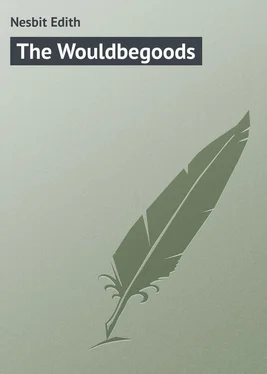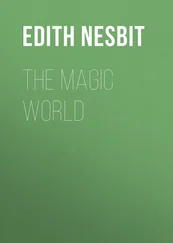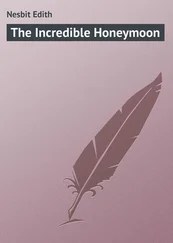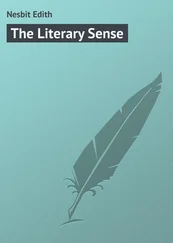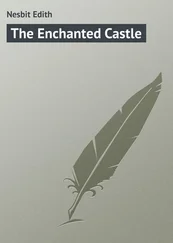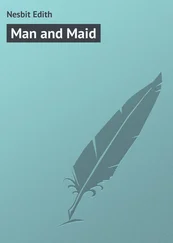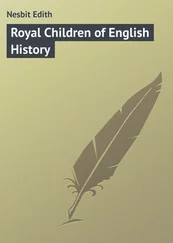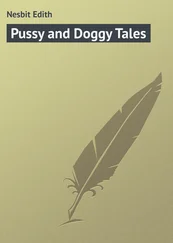Edith Nesbit - The Wouldbegoods
Здесь есть возможность читать онлайн «Edith Nesbit - The Wouldbegoods» — ознакомительный отрывок электронной книги совершенно бесплатно, а после прочтения отрывка купить полную версию. В некоторых случаях можно слушать аудио, скачать через торрент в формате fb2 и присутствует краткое содержание. Жанр: Прочие приключения, foreign_prose, на английском языке. Описание произведения, (предисловие) а так же отзывы посетителей доступны на портале библиотеки ЛибКат.
- Название:The Wouldbegoods
- Автор:
- Жанр:
- Год:неизвестен
- ISBN:нет данных
- Рейтинг книги:5 / 5. Голосов: 1
-
Избранное:Добавить в избранное
- Отзывы:
-
Ваша оценка:
- 100
- 1
- 2
- 3
- 4
- 5
The Wouldbegoods: краткое содержание, описание и аннотация
Предлагаем к чтению аннотацию, описание, краткое содержание или предисловие (зависит от того, что написал сам автор книги «The Wouldbegoods»). Если вы не нашли необходимую информацию о книге — напишите в комментариях, мы постараемся отыскать её.
The Wouldbegoods — читать онлайн ознакомительный отрывок
Ниже представлен текст книги, разбитый по страницам. Система сохранения места последней прочитанной страницы, позволяет с удобством читать онлайн бесплатно книгу «The Wouldbegoods», без необходимости каждый раз заново искать на чём Вы остановились. Поставьте закладку, и сможете в любой момент перейти на страницу, на которой закончили чтение.
Интервал:
Закладка:
Nesbit E. Edith
The Wouldbegoods
THE JUNGLE
"Children are like jam: all very well in the proper place, but you can't stand them all over the shop – eh, what?"
These were the dreadful words of our Indian uncle. They made us feel very young and angry; and yet we could not be comforted by calling him names to ourselves, as you do when nasty grown-ups say nasty things, because he is not nasty, but quite the exact opposite when not irritated. And we could not think it ungentlemanly of him to say we were like jam, because, as Alice says, jam is very nice indeed – only not on furniture and improper places like that. My father said, "Perhaps they had better go to boarding-school." And that was awful, because we know father disapproves of boarding-schools. And he looked at us and said, "I am ashamed of them, sir!"
Your lot is indeed a dark and terrible one when your father is ashamed of you. And we all knew this, so that we felt in our chests just as if we had swallowed a hard-boiled egg whole. At least, this is what Oswald felt, and father said once that Oswald, as the eldest, was the representative of the family, so, of course, the others felt the same.
And then everybody said nothing for a short time. At last father said:
"You may go – but remember – " The words that followed I am not going to tell you. It is no use telling you what you know before – as they do in schools. And you must all have had such words said to you many times. We went away when it was over. The girls cried, and we boys got out books and began to read, so that nobody should think we cared. But we felt it deeply in our interior hearts, especially Oswald, who is the eldest and the representative of the family.
We felt it all the more because we had not really meant to do anything wrong. We only thought perhaps the grown-ups would not be quite pleased if they knew, and that is quite different. Besides, we meant to put all the things back in their proper places when we had done with them before any one found out about it. But I must not anticipate (that means telling the end of a story before the beginning. I tell you this because it is so sickening to have words you don't know in a story, and to be told to look it up in the dicker).
We are the Bastables – Oswald, Dora, Dicky, Alice, Noël, and H. O. If you want to know why we call our youngest brother H. O. you can jolly well read The Treasure Seekers and find out. We were the Treasure Seekers, and we sought it high and low, and quite regularly, because we particularly wanted to find it. And at last we did not find it, but we were found by a good, kind Indian uncle, who helped father with his business, so that father was able to take us all to live in a jolly big red house on Blackheath, instead of in the Lewisham Road, where we lived when we were only poor but honest Treasure Seekers. When we were poor but honest we always used to think that if only father had plenty of business, and we did not have to go short of pocket-money and wear shabby clothes (I don't mind this myself, but the girls do), we should be quite happy and very, very good.
And when we were taken to the beautiful big Blackheath house we thought now all would be well, because it was a house with vineries and pineries, and gas and water, and shrubberies and stabling, and replete with every modern convenience, like it says in Dyer & Hilton's list of Eligible House Property. I read all about it, and I have copied the words quite right.
It is a beautiful house, all the furniture solid and strong, no casters off the chairs, and the tables not scratched, and the silver not dented; and lots of servants, and the most decent meals every day – and lots of pocket-money.
But it is wonderful how soon you get used to things, even the things you want most. Our watches, for instance. We wanted them frightfully; but when I had had mine a week or two, after the mainspring got broken and was repaired at Bennett's in the village, I hardly cared to look at the works at all, and it did not make me feel happy in my heart any more, though, of course, I should have been very unhappy if it had been taken away from me. And the same with new clothes and nice dinners and having enough of everything. You soon get used to it all, and it does not make you extra happy, although, if you had it all taken away, you would be very dejected. (That is a good word, and one I have never used before.) You get used to everything, as I said, and then you want something more. Father says this is what people mean by the deceitfulness of riches; but Albert's uncle says it is the spirit of progress, and Mrs. Leslie said some people called it "divine discontent." Oswald asked them all what they thought, one Sunday at dinner. Uncle said it was rot, and what we wanted was bread and water and a licking; but he meant it for a joke. This was in the Easter holidays.
We went to live at Morden House at Christmas. After the holidays the girls went to the Blackheath High School, and we boys went to the Prop. (that means the Proprietary School). And we had to swot rather during term; but about Easter we knew the deceitfulness of riches in the vac., when there was nothing much on, like pantomimes and things. Then there was the summer term, and we swotted more than ever; and it was boiling hot, and masters' tempers got short and sharp, and the girls used to wish the exams, came in cold weather. I can't think why they don't. But I suppose schools don't think of sensible things like that. They teach botany at girls' schools.
Then the midsummer holidays came, and we breathed again – but only for a few days. We began to feel as if we had forgotten something, and did not know what it was. We wanted something to happen – only we didn't exactly know what. So we were very pleased when father said:
"I've asked Mr. Foulkes to send his children here for a week or two. You know – the kids who came at Christmas. You must be jolly to them, and see that they have a good time, don't you know."
We remembered them right enough – they were little pinky, frightened things, like white mice, with very bright eyes. They had not been to our house since Christmas, because Denis, the boy, had been ill, and they had been with an aunt at Ramsgate.
Alice and Dora would have liked to get the bedrooms ready for the honored guests, but a really good housemaid is sometimes more ready to say "don't" than even a general. So the girls had to chuck it. Jane only let them put flowers in the pots on the visitors' mantel-pieces, and then they had to ask the gardener which kind they might pick, because nothing worth gathering happened to be growing in our own gardens just then.
Their train got in at 12.27. We all went to meet them. Afterwards I thought that was a mistake, because their aunt was with them, and she wore black with beady things and a tight bonnet, and she said, when we took our hats off, "Who are you?" quite crossly.
We said, "We are the Bastables; we've come to meet Daisy and Denny."
The aunt is a very rude lady, and it made us sorry for Daisy and Denny when she said to them:
" Are these the children? Do you remember them?"
We weren't very tidy, perhaps, because we'd been playing brigands in the shrubbery; and we knew we should have to wash for dinner as soon as we got back, anyhow. But still —
Denny said he thought he remembered us. But Daisy said, "Of course they are," and then looked as if she was going to cry.
So then the aunt called a cab, and told the man where to drive, and put Daisy and Denny in, and then she said:
"You two little girls may go too, if you like, but you little boys must walk."
So the cab went off, and we were left. The aunt turned to us to say a few last words. We knew it would have been about brushing your hair and wearing gloves, so Oswald said, "Good-bye," and turned haughtily away, before she could begin, and so did the others. No one but that kind of black, beady, tight lady would say "little boys." She is like Miss Murdstone in David Copperfield . I should like to tell her so; but she would not understand. I don't suppose she has ever read anything but Markham's History and Mangnall's Questions – improving books like that.
Читать дальшеИнтервал:
Закладка:
Похожие книги на «The Wouldbegoods»
Представляем Вашему вниманию похожие книги на «The Wouldbegoods» списком для выбора. Мы отобрали схожую по названию и смыслу литературу в надежде предоставить читателям больше вариантов отыскать новые, интересные, ещё непрочитанные произведения.
Обсуждение, отзывы о книге «The Wouldbegoods» и просто собственные мнения читателей. Оставьте ваши комментарии, напишите, что Вы думаете о произведении, его смысле или главных героях. Укажите что конкретно понравилось, а что нет, и почему Вы так считаете.
